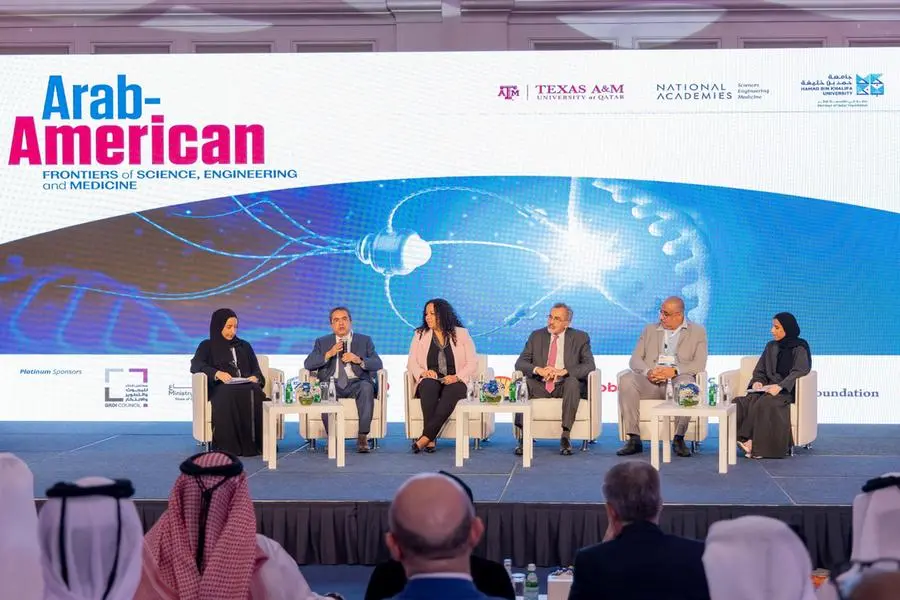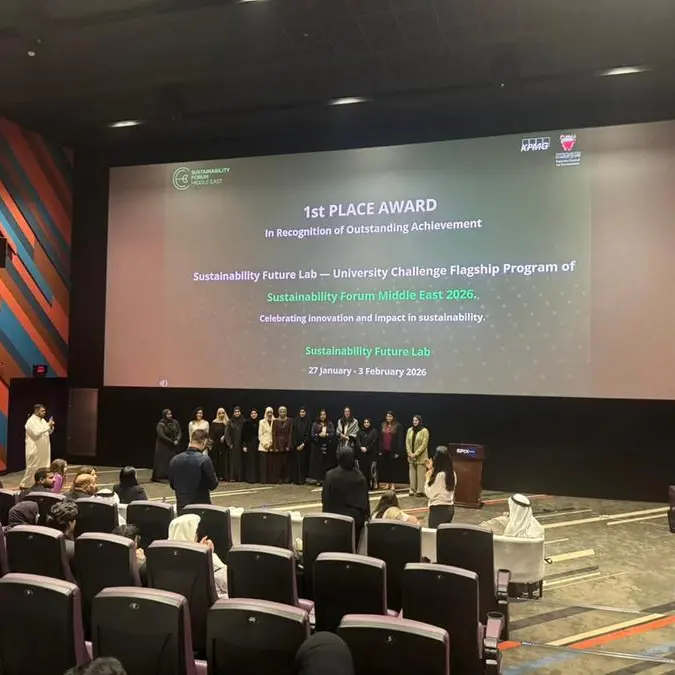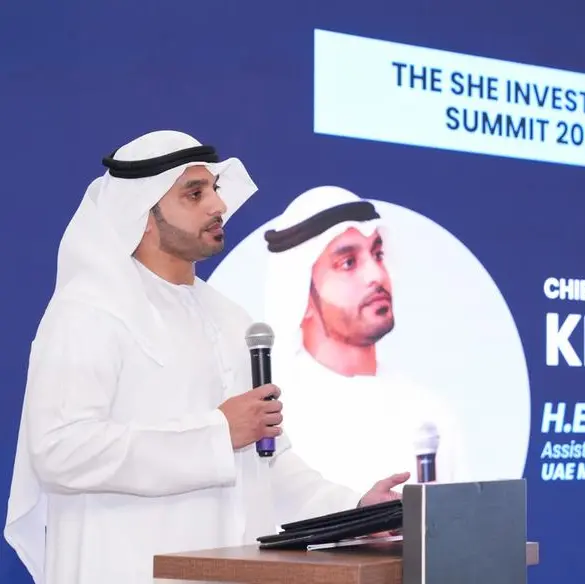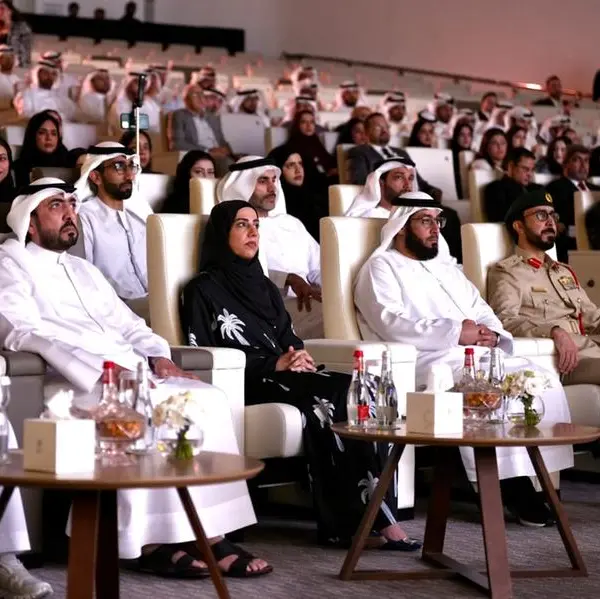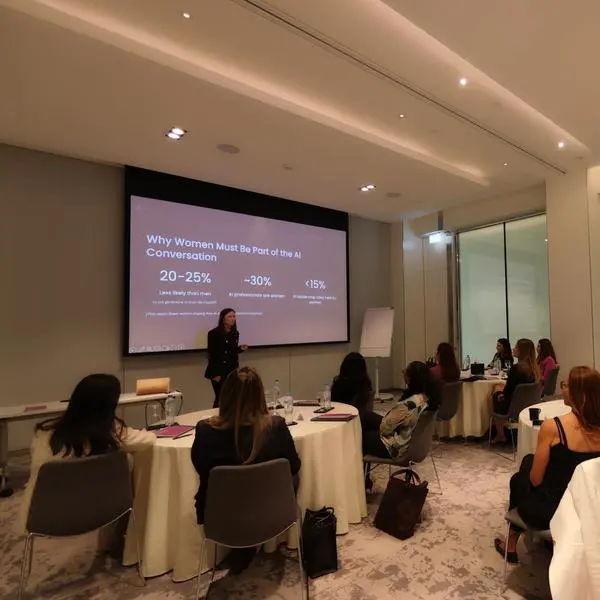PHOTO
Doha: Hamad Bin Khalifa University’s (HBKU) College of Science and Engineering (CSE), Texas A&M University at Qatar, and the U.S. National Academies of Sciences, Engineering, and Medicine (NASEM) co-hosted the ninth Arab American Frontiers Symposium between October 23-25 in Doha at the JW Marriott Marquis City Center.
Attendees included His Excellency (HE) Dr. Khalid bin Mohamed Al Attiyah, Deputy Prime Minister and Minister of State for Defense Affairs in the, State of Qatar, of the State of Qatar, HE Buthaina bint Ali Al Jabr Al Nuaimi, Minister of Education and Higher Education, HE Sheikh Dr Faleh bin Nasser bin Ahmed bin Ali Al Thani, Minister of Environment and Climate Change, and other esteemed guests from across government, academia, and industry.
The event was organized with the support of the Qatar Research, Development, and Innovation (QRDI) Council, the State of Qatar’s Ministry of Defence, U.S. Agency for International Development, Shell, ExxonMobil, American Chemical Society, and the Rutter Foundation. It saw the participation of researchers and professionals from across the United States and the Middle East and North Africa (MENA) region, who discussed major advances in science, engineering, and medicine, and opportunities to foster collaboration across these various disciplines.
The Symposium’s sessions were co-chaired by renowned experts in decarbonization, quantum computing, precision medicine, and technologies for equity and inclusion. These included Dr. Mohammed Al-Hashimi and Dr. Dhabia Al Mohannadi, both of Texas A&M University at Qatar’s Chemical Engineering Department, and Dr. Umut Gurkan of Case Western University’s Department of Mechanical and Aerospace Engineering at the Case School of Engineering in the United States. Dr. Dena Al Thani, Associate Professor and Dr. Saif Al Kuwari, Assistant Professor, both of the HBKU College of Science and Engineering’s Information and Computing Technology Division, also served as co-chairs alongside colleagues from King Abdullah University of Science and Technology (KAUST), New York University Abu Dhabi, and the University of California.
The event featured 16 presentations in which researchers from US-based institutions - including the Georgia Institute of Technology, Keck Graduate Institute, the University of California, Davis, the University of Florida, and the University of Pennsylvania participated in and shared insights on topics within these fields.
Several MENA-based institutions also participated in the ninth Arab American Frontiers Symposium, including Dark Star Quantum Lab, University Mohammed V of Rabat, Frères Mentouri Constantine 1 University, Khalifa University, KAUST, Kuwait University, Oman Vision 2040 Implementation Follow-up Unit, SandboxAQ, and Sidra Medicine.
The Symposium also featured poster sessions where researchers exchanged feedback on ongoing projects, and a tech transfer panel where participants swapped observations and analyses concerning emerging innovative technologies.
Established in 2011, the Arab-American Frontiers Symposium is an annual initiative that convenes young scientists and researchers from the United States and the Arab world to engage with one another and explore opportunities for collaboration in their fields. These meetings enhance scientific exchange and dialogue in the MENA region and the United States, including the Arab science diaspora, to facilitate cooperation within and beyond the region.
[ENDS]
About Hamad Bin Khalifa University
Innovating Today, Shaping Tomorrow
Hamad Bin Khalifa University (HBKU), a member of Qatar Foundation for Education, Science, and Community Development (QF), was founded in 2010 as a research-intensive university that acts as a catalyst for transformative change in Qatar and the region while having global impact. Located in Education City, HBKU is committed to building and cultivating human capacity through an enriching academic experience, innovative ecosystem, and unique partnerships. HBKU delivers multidisciplinary undergraduate and graduate programs through its colleges, and provides opportunities for research and scholarship through its institutes and centers. For more information about HBKU, visit www.hbku.edu.qa.
